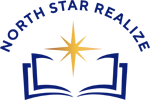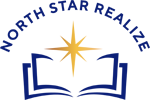NSR Academy K-12
At NS Realize, we harness technology to make learning accessible and engaging for all, breaking boundaries with e-learning for learners and educators worldwide...
November 10, 2023
Explore Our Courses
Dive into our featured courses designed to spark curiosity and foster a love for learning.
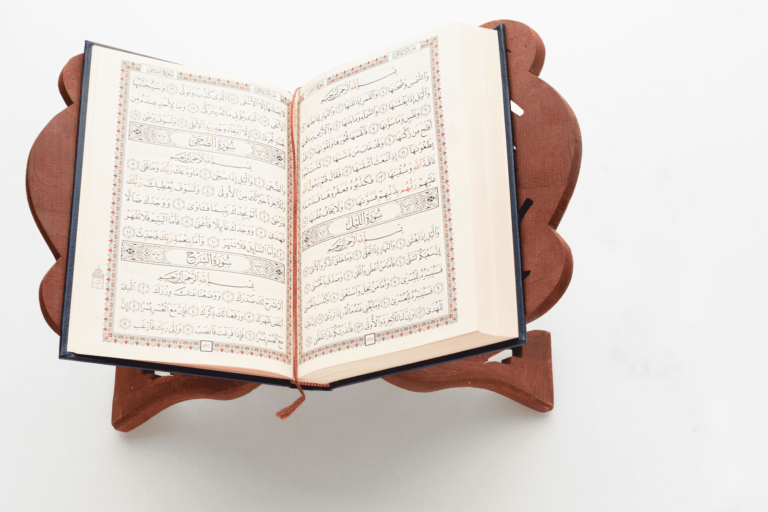
Holy Quran
في مرحلة رياض الأطفال، تُعنى أهداف تعليم القرآن الكريم بتعليم الأطفال الحروف والأصوات القرآنية الأساسية، وتحفيظهم للسور القرآنية القصيرة والآيات البسيطة. يُساعد هذا التعليم على بناء الأسس الأولية لتلاوة القرآن بشكل
صحيح وفهم المعاني الأساسية للآيات. كما تعزز الأنشطة المتنوعة فهم القيم والمبادئ الإسلامية بطريقة ملهمة ومناسبة لهذه المرحلة المبكرة.
99 USD /1 month
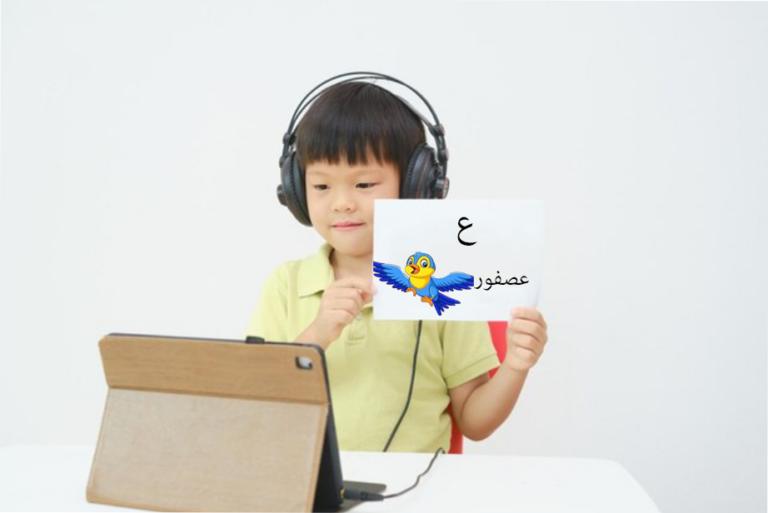
Arabic Language
في مرحلة رياض الأطفال، تتركز أهداف تعلم فنون اللغة العربية على بناء القواعد الأساسية التي تساعد الأطفال على فهم واستخدام اللغة بشكل أولي وفعال. يتعل الأطفال التعرف على الحروف والأصوات العربية، وفهم مفاهيم النطق
والكلمات البسيطة. كما يتطورون في مهارات القراءة من خلال التعرف على الحروف والكلمات الأولية وفهم القصص البسيطة. في الكتابة، يستخدم الأطفال الرسم والحديث والكتابة للتعبير عن أفكارهم وتجاربهم الشخصية، ويتعلمون كيفية تحسين كتاباتهم من خلال التعليقات والمشاركة في الأنشطة الكتابية المشتركة. أما في الاستماع والتحدث، يشجع الأطفال على المشاركة في المحادثات البسيطة والاستماع إلى القصص ووصف الأشياء المألوفة باستخدام الرسومات لتعزيز التعبير الشفوي بوضوح.
99 USD /1 month

English Language
The Kindergarten English Language Arts (ELA) objectives focus on building foundational literacy skills across reading, writing, speaking, listening, and
and language.
In Kindergarten English Language Arts, students develop foundational literacy skills across various areas. In Reading Literature, they ask and answer questions about stories, retell tales, identify characters, settings, and major events, recognize text types, understand authors and illustrators roles, and relate illustrations to stories. For Reading Informational Texts, they identify main topics and key details, describe connections between ideas, understand book parts, relate illustrations to text, identify author supporting points, compare similar texts, and engage in group reading. Reading Foundational Skills emphasize print concepts, letter recognition, phonological awareness,
phonics for word decoding, and reading high-frequency words and simple texts with comprehension.
In Writing, kindergarteners use drawing, dictating, and writing to create opinion pieces, informative texts, and narratives. They learn to improve their writing through peer feedback, explore digital writing tools, and engage in shared research and writing projects to develop collaborative skills.
Speaking and Listening standards for kindergarteners emphasize participating in conversations, asking and answering questions about read-aloud or presentations, and describing familiar people, places, things, and events. They also learn to use drawings to enhance descriptions and to speak clearly to express their thoughts and ideas.
Language standards for kindergarteners focus on using standard English grammar and conventions in writing and speaking. Students work on understanding word meanings, exploring word relationships and nuances, and incorporating new vocabulary into
conversations and writing, providing a solid foundation for future literacy development and academic success.
99 USD /1 month

Math
At the Kindergarten (KG) level, math learning objectives emphasize foundational skills in number recognition, counting basic operations (such as
addition and subtraction within small numbers), understanding shapes, patterns, and developing early problem-solving abilities. The curriculum aims to foster a solid grasp of numbers and shapes through hands-on activities, using concrete materials, and promoting verbal communication of mathematical concepts. These objectives are designed to lay a strong foundation for further math education by encouraging
exploration, reasoning, and mathematical vocabulary development in young learners.
99 USD /1 month
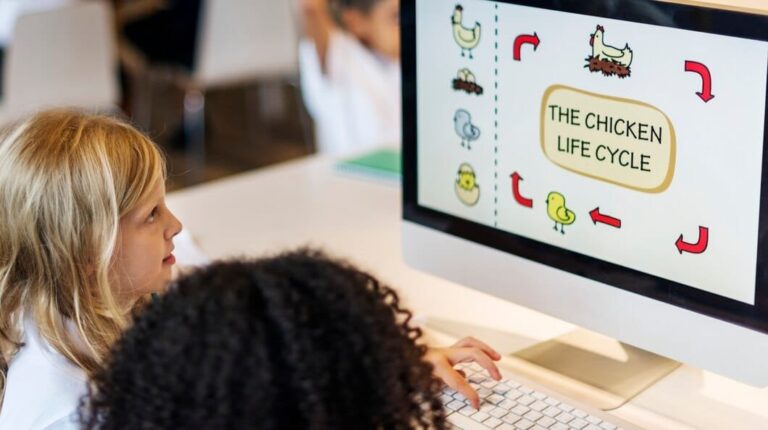
Science (KG3 Only)
The objectives for KG science education focus on fostering curiosity and a foundational understanding of the natural world. Students are encouraged to
explore and observe their environment, learn basic scientific concepts through hands-on activities, and begin understanding living things and their basic needs. Safety, environmental awareness, and integrating science with other subjects like language arts and mathematics are also emphasized. Overall, the goals aim to develop early scientific skills, nurture curiosity, and lay the groundwork for future scientific inquiry.
99 USD /1 month

Holy Quran
في المرحلة الابتدائية الأولية (1-3)، يتعلم الطفل الحروف والأصوات القرآنية الأساسية، ويحفظ سورًا قصيرة مثل سورة الفاتحة وبعض السور والآيات المختارة. ويتم تبسيط شرح معاني الآيات بشكل يناسب فهمهم العمري، ويُشَجعون
على المشاركة في الأنشطة التي تعزز فهمهم للقيم الدينية والممارسات اليومية كالأذكار والأناشيد الدينية. والهدف من ذلك بناء أسس قوية لعلاقة الأطفال بالقرآن وتعزيز فهمهم الإيماني والثقافي في هذه المرحلة المبكرة.
99 USD /1 month
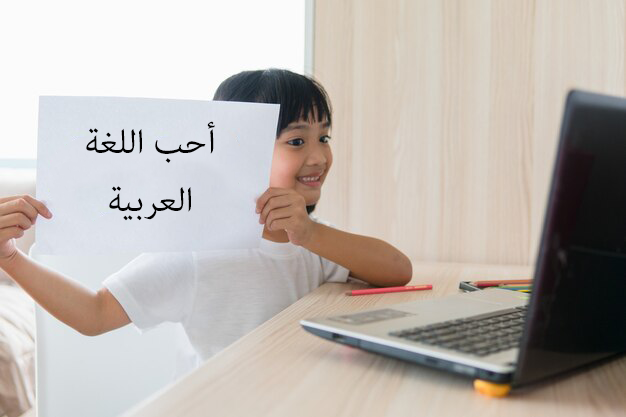
Arabic Language
في المرحلة الابتدائية العليا، تتطور مهارات القراءة والكتابة والتحدث والاستماع لدى الطلاب بشكل تدريجي. ففي الصف الأول، يركز الطلاب على طرح الأسئلة حول النصوص، وإعادة سرد القصص، واكتساب مهارات الصوتيات والوعي
الصوتي، بالإضافة إلى كتابة قصص وفقرات بسيطة، والمشاركة في المناقشات لتطوير مهارات التحدث. في الصف الثاني، يتعمق الطلاب في النصوص من خلال طرح أسئلة تفصيلية وفهم العلاقات بين الأفكار، واستخدام ميزات النص لاستخلاص المعلومات، مع تحسين مهارات الكتابة من خلال التنقيح واستخدام الأدوات الرقمية. في الصف الثالث، يركز التعليم على فهم المحتوى من خلال إعادة سرد القصص واستخلاص الأفكار الرئيسية، ووصف الشخصيات وتأثيراتها، والتمييز بين وجهات النظر المختلفة، مع تطوير مهارات الكتابة عبر التخطيط والمراجعة والتحرير، وكتابة قصص وفقرات أكثر تفصيلاً، كما يتم استخدام التكنولوجيا لتعزيز مهارات القراءة والكتابة وتطوير التعلم الذاتي عبر الإنترنت.
99 USD /1 month
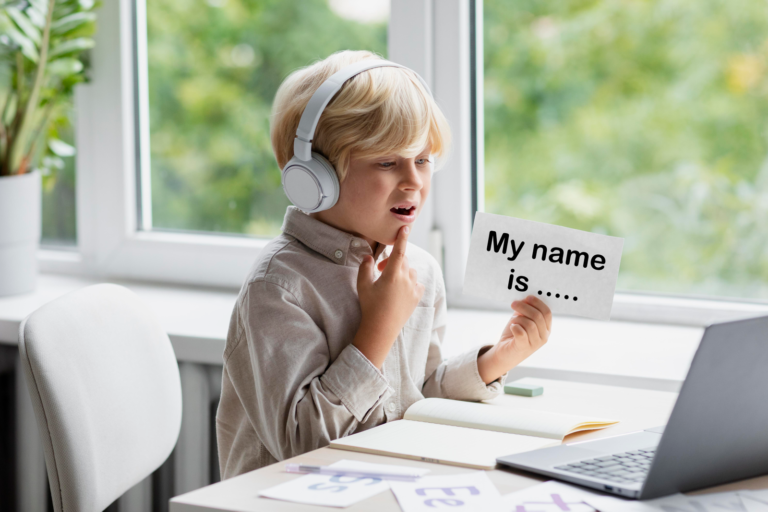
English Language
The English Language Arts (ELA) objectives for Grades 1-3 progressively build on foundational literacy skills, advancing in complexity and depth. In
Grade 1, students focus on asking and answering questions about texts, retelling stories, and identifying key elements like characters and settings. They develop phonics and phonological awareness, begin writing opinion pieces, informative texts, and narratives, and enhance their speaking and listening skills through conversations and descriptions. By Grade 2, these skills are deepened with more detailed questions and connections in texts, using text features for information, and applying phonics more rigorously. Writing involves more revision and digital tools, and students engage in shared research projects. Grade 3 further advances these skills, emphasizing comprehension through recounting stories and determining main ideas, describing character actions and their impacts, and
distinguishing points of view. Writing becomes more sophisticated with planning, revising, and editing processes, and students conduct research projects using technology.
Throughout these grades, the progression from basic understanding to more analytical and detailed literacy tasks, as well as the increasing use of technology and collaboration, prepares students for higher-level reading and writing.
99 USD /1 month
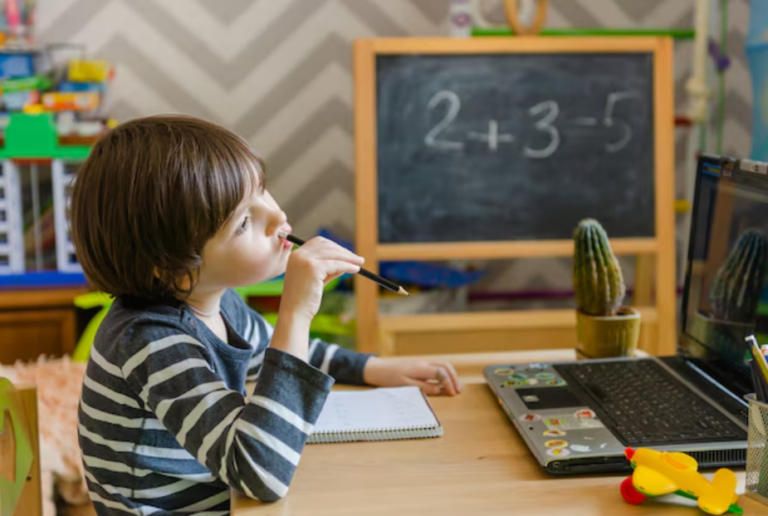
Math
In grades 1 to 3, the math curriculum aims to establish foundational skills while progressively advancing students’ mathematical understanding. Beginning
with number sense and basic operations in grade 1, students learn to count, compare numbers, and solve simple addition and subtraction problems. By grade 2, they extend their knowledge to include three-digit numbers, deeper exploration of place value, and more complex strategies for addition and subtraction. Measurement and data interpretation skills expand to include standard units and basic graphing.
In grade 3, students further develop their arithmetic skills with multiplication and division, tackle more intricate word problems, and delve into concepts like fractions, area, and perimeter. Throughout these grades, emphasis is placed on mathematical reasoning, problem-solving, and communication, ensuring students build a solid mathematical foundation essential for future learning in mathematics and other disciplines.
99 USD /1 month
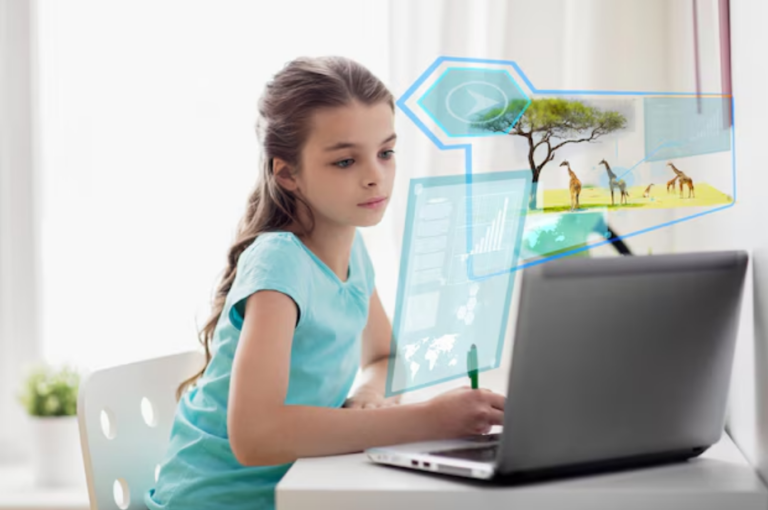
Science
The science learning objectives for grades 1-3 are designed to cultivate a foundational understanding of scientific principles while nurturing curiosity and
critical thinking in young learners. Students engage in hands-on exploration of natural phenomena, develop basic scientific skills such as observation and inquiry, and begin to grasp fundamental concepts in life sciences, earth sciences, and physical sciences. Integration with mathematics and language arts enriches their learning experience, while emphasis on safety, ethical practices, and effective communication ensures a well-rounded scientific education. Overall, these objectives aim to lay a robust groundwork for future scientific learning and empower students to understand and appreciate the world around them.
99 USD /1 month
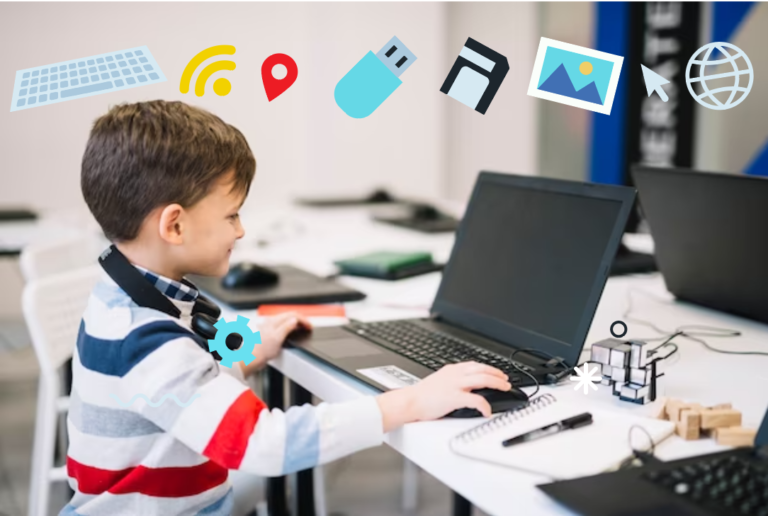
Computer Sciences
In grades 1-3, computer science education introduces foundational concepts and skills aimed at familiarizing students with basic computer hardware,
digital tools, and elementary coding principles. Students begin by learning about computer components and gaining proficiency in using basic software and educational websites. As they progress through these grades, they start to explore block-based programming languages, understand algorithms, and develop computational thinking skills to solve simple problems. Additionally, they learn about internet
safety, digital citizenship, and begin to engage with basic research skills and online resources.
Overall, the curriculum aims to lay a solid groundwork in digital literacy and problem-solving abilities essential for future learning in computer science and technology.
99 USD /1 month

Holy Quran
في المرحلة الابتدائية (4-6)، تُركز أهداف تعليم القرآن الكريم على تعميق فهم الأطفال للقرآن وتطوير مهاراتهم في قراءة وحفظ القرآن. يتضمن ذلك تحفيظ سور قرآنية متوسطة الطول، وتعلم قواعد التجويد، وفهم معاني الآيات
بأسلوب يناسب تطورهم العقلي والديني. كما تُشجع المشاركة في الأنشطة المتنوعة لتعزيز الفهم الديني والثقافي، وتعزيز الانتماء إلى القيم الإسلامية وتطبيقها في حياتهم اليومية بشكل فعّال.
99 USD /1 month

Arabic Language
في المرحلة الابتدائية العليا تتطور المهارات اللغوية والتفكير النقدي والتحليلي لدى الأطفال. تركز أهداف التعليم على تحليل النصوص المعقدة واستخلاص الأفكار الرئيسية منها، وتقييم النصوص من حالجودة والمحتوى والتعبير
الأدبي. ويتم تعزيزمهارات الكتابة من خلال الكتابة الإبداعية كالقصص والفقرات والوظيفية كالرسائل، مع تطوير مهارات التحرير والمراجعة
الذاتية للنصوص المكتوبة. وتنمو مهارات التحدث والاستماع عبر المشاركة في المناقشات الجماعية، وإعداد وتقديم عروض شفوية منظمة، وتحسين الاستماع النقدي. كما تشمل الأهداف تطوير مهارات البحث باستخدام مصادر مكتبية وإلكترونية، وتنفيذ مشاريع بحثية جماعية وفردية. ويتم تعزيز الوعي الثقافي والأدبي بقراءة وتحليل الأدب العربي والعالمي الكلاسيكي والحديث. استخدام التكنولوجيا يشمل الأدوات الرقمية لتعزيز القراءة والكتابة، وتطوير مهارات التعلم الذاتي عبر الإنترنت. تسعى هذه الأهداف إلى إعداد الطلاب ليصبحوا قراءًا وكتّابًا ونقادًا مفكرين، قادرين على التواصل بفعالية وتحليل المعلومات بشكل نقدي، مما يؤهلهم لمواصلة تعليمهم بنجاح في المراحل التعليمية اللاحقة.
99 USD /1 month
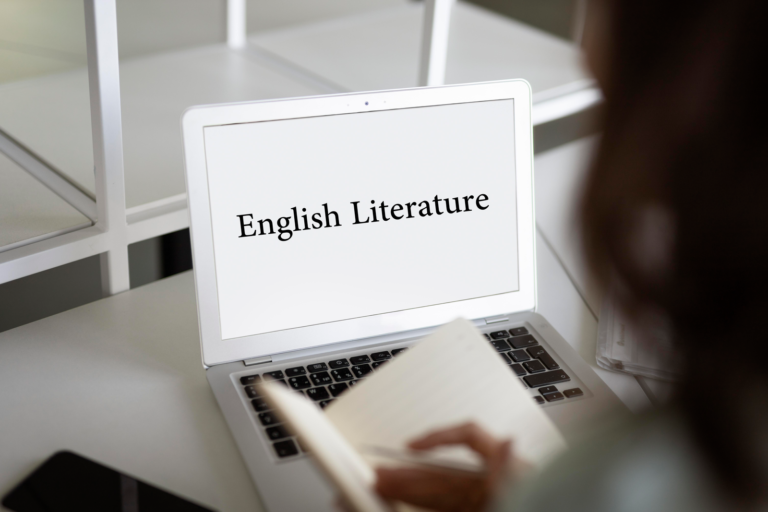
English Language
The English Language Arts (ELA) objectives for Grades 4-6 progressively build on literacy skills, enhancing comprehension, writing and
communication abilities. Across these grades, students develop their ability to cite textual evidence, identify main ideas and themes, and analyze text structures. In reading, they move from understanding explicit content to making inferences and analyzing how parts of a text contribute to its overall meaning. Writing tasks become increasingly complex, evolving from crafting structured opinion pieces, informative texts, and narratives in Grade 4 to developing well-supported arguments and conducting thorough research projects by Grade 6. The use of the writing process and technology is emphasized throughout to plan, revise, and publish work. Speaking and listening standards progress from participating in discussions and presenting information clearly in Grade 4 to summarizing diverse media and presenting claims with supporting evidence by Grade 6.
Language skills focus consistently on proper grammar, usage, punctuation, and vocabulary, with an increasing emphasis on understanding figurative language and word relationships. This progression ensures that students build a strong foundation in literacy, critical thinking, and effective communication as they advance through each grade level.
99 USD /1 month
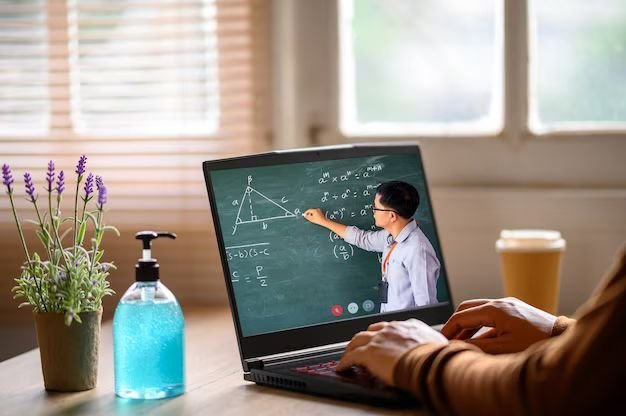
Math
In grades 4 to 6, the math curriculum focuses on advancing fundamental skills while introducing more complex concepts and problem-solving strategies.
Grade 4 emphasizes extending understanding of place value to decimals, performing multi-digit operations, and exploring patterns and geometric classifications. By grade 5, students progress to mastering operations with decimals and fractions, interpreting numerical expressions, and analyzing data representations on coordinate grids. Grade 6 further builds upon these foundations by delving into division with multi-digit numbers, solving equations, understanding ratios, and applying geometric principles to solve real-world problems involving area, surface area, and volume. Throughout these grades, the emphasis is on developing fluency in mathematical operations, logical reasoning, and practical application of mathematical concepts, laying a robust groundwork for continued mathematical success in higher education and beyond.
99 USD /1 month
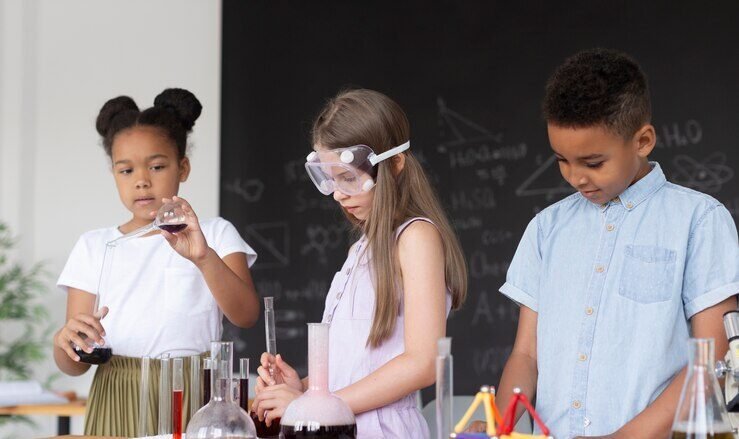
Science
The science learning objectives for grades 4-6 are designed to expand students knowledge and skills across various scientific disciplines. Students
delve into advanced topics like ecosystems, forces, and geological processes while honing their scientific inquiry abilities through hands-on experiments and technological applications. Integration of mathematics enhances their data analysis and problem-solving capabilities within scientific contexts. Emphasis is placed on fostering critical thinking, effective communication through scientific writing and presentations, and ethical awareness in scientific practices and environmental stewardship. Overall, these objectives provide a robust foundation for students to deepen their understanding of the natural world and prepare them for more complex scientific exploration in subsequent grades.
99 USD /1 month

Computer Sciences
In grades 4-6, students learn introductory programming concepts using text-based languages, develop computational thinking through problem-solving
exercises, and explore basic digital tools like word processing and data analysis. By grade 6, they advance to mastering
programming constructs such as classes and objects, begin learning web development with HTML and CSS, and gain knowledge in cybersecurity and digital citizenship. This curriculum prepares them with essential skills in programming, problem-solving, and digital literacy crucial for future academic and career endeavors in technology.
99 USD /1 month

Holy Quran
في المرحلة المتوسطة، تُعزز أهداف تعليم القرآن الكريم لدى الطلاب عدة جوانب أساسية. يتضمن ذلك تحفيظ سور طويلة من القرآن وتطبيق قواعد التجويد بدقة، مع التركيز على فهم المعاني القرآنية وتفسيرها بشكل عميق. يُعمق البرنامج أيضًا
في دراسة الموضوعات الدينية المتقدمة مثل العقيدة والفقه والسيرة النبوية، مما يساهم في بناء شخصية دينية متزنة. المشاركة الفعّالة في الأنشطة لتعزيز الانتماء الديني وتعزيز العلاقة القوية بين الطلاب وكتاب الله وسنة رسوله صلى الله عليه وسلم.
99 USD /1 month
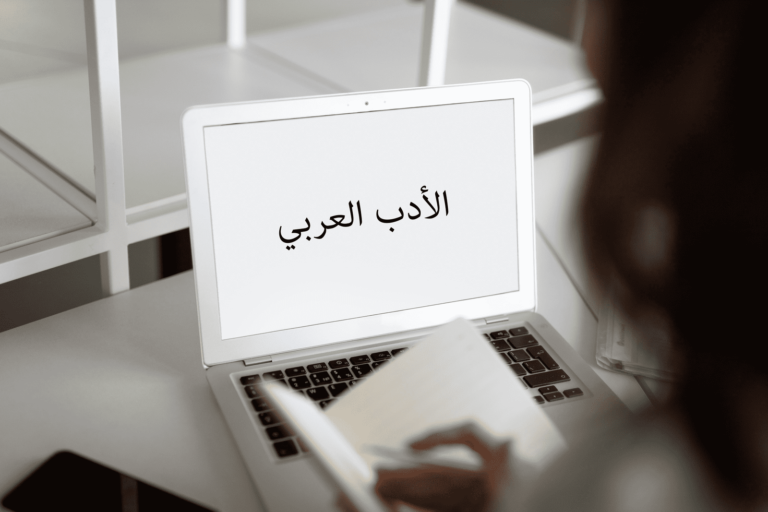
Arabic Language
تتطور مهارات الطلاب اللغوية والأدبية بشكل شامل، حيث يتمحور التعليم حول تحليل النصوص الأدبية بعمق وتفصيل، فيتعلم الطلاب كيفية فهم البنية الأدبية، والحبكة، والشخصيات، والبيئة الخلفية للأعمال الأدبية التي يتم
دراستها. ويتدرب الطلاب على استخلاص الأفكار الرئيسية والفرعية من النصوص، وتقييمها بشكل نقدي، مما يعزز من قدراتهم على التفكير النقدي والتحليلي. بالإضافة إلى ذلك، يتم تعزيز مهارات الكتابة لدى الطلاب من خلال كتابة نصوص إبداعية متنوعة، مثل القصص القصيرة، والمقالات الأدبية، والشعر، مما يساهم في تنمية خيالهم الإبداعي وقدراتهم على التعبير الأدبي. كما يتدرب الطلاب على الكتابة الوظيفية، مثل كتابة التقارير والبحوث العلمية، مما يمنحهم المهارات اللازمة للتفاعل بفعالية في البيئات الأكاديمية والمهنية. تتضمن أهداف التعليم أيضًا تطوير مهارات التحرير والمراجعة الذاتية بشكل متقدم، حيث يتعلم الطلاب كيفية تحسين أسلوب كتابتهم واستخدام اللغة بشكل دقيق وفعال. يتمكنون أيضًا من إعادة كتابة النصوص بطريقة تعزز من وضوح وجاذبية م يكتبونه. علاوة على ذلك، يتم تنمية مهارات الطلاب في التحدث والاستماع من خلال المشاركة الفعالة في المناقشات الجماعية والعروض الشفوية. يتعلم الطلاب كيفية التعبير عن آرائهم بوضوح وثقة، وتقديم أفكارهم بطريقة منطقية ومقنعة. كما يتدربون على مهارات الاستماع النقدي والتفاعل مع الأفكار المطروحة بفعالية، مما يعزز من قدراتهم على التواصل والحوار البناء. أما فيما يتعلق بالبحث والتحليل، تتعزز قدرات الطلاب في إجراء البحوث العلمية، باستخدام مصادر متنوعة وتطبيق أساليب البحث العلمي بدقة ومهارة. ويتعلم الطلاب كيفية صياغة أسئلة البحث، وجمع وتحليل البيانات، وكتابة تقارير البحث بطريقة تعكس تفاعلهم العميق مع الموضوعات المدروسة. أخيرًا، يتعزز الوعي الثقافي والأدبي لدى الطلاب، من خلال قراءة ودراسة الأدب العربي والعالمي، وفهم السياقات الثقافية المختلفة التي أنتجت هذه الأعمال الأدبية. يتعلم الطلاب كيفية تقدير التنوع الثقافي واحترامه، وكذلك كيفية التفاعل مع الأفكار والقيم المطروحة في النصوص بشكل نقدي وبناء.
99 USD /1 month
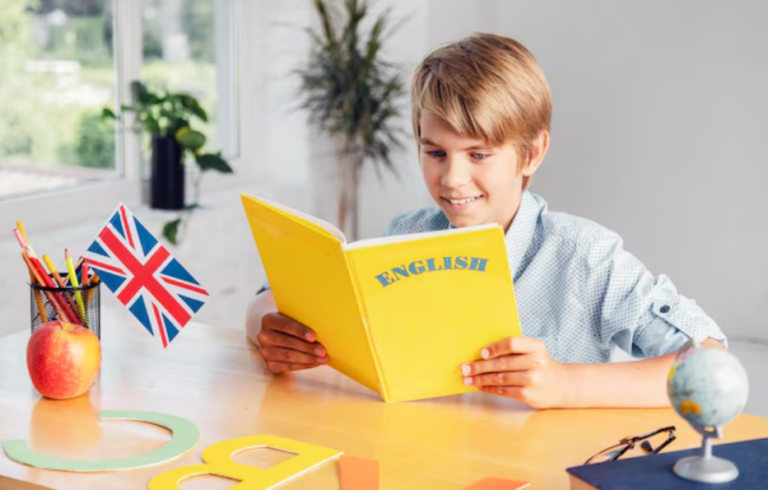
English Language
In grades 7 and 8 English Language Arts (ELA), students focus on advancing their literacy skills across reading, writing, speaking, listening, and language usage.
They develop critical reading abilities by analyzing various texts and identifying central ideas, themes, and literary elements such as plot and symbolism. Writing skills expand as students learn to craft persuasive arguments, informative essays, and narratives with clear organization and supporting evidence. Research skills are honed through conducting and synthesizing information from multiple sources. Speaking and listening skills are cultivated through engaging in discussions, delivering presentations, and evaluating others perspectives and reasoning. Language standards emphasize using grammar correctly, expanding vocabulary, and understanding word meanings in different contexts. These objectives collectively prepare students to effectively comprehend, communicate, and analyze information, fostering their academic growth and readiness for higher education and future careers.
99 USD /1 month

Math
In grades 7 and 8, the math curriculum focuses on expanding and refining foundational skills while introducing more complex mathematical concepts.
Grade 7 emphasizes operations with rational numbers, solving equations and inequalities, and understanding proportional relationships and geometric principles such as angle measure and area. Students learn to analyze data sets and draw inferences, laying the groundwork for statistical reasoning. In grade 8, the curriculum progresses to include working with radicals and exponents, exploring functions and their applications, and deepening understanding of geometric transformations and relationships.
Students also delve into bivariate data analysis and begin to use mathematical models to predict outcomes. Overall, these grades aim to deepen mathematical fluency, strengthen problem-solving abilities, and prepare students for advanced math concepts they will encounter in high school and beyond.
99 USD /1 month
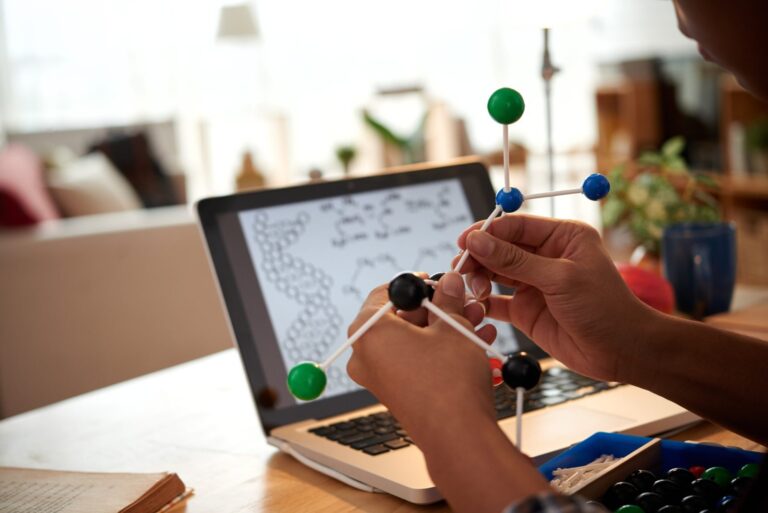
Science
In grades 7-8, students delve deeper into advanced scientific concepts across biology, physics, and chemistry. In biology, they explore cell biology, ecology,
human anatomy, and environmental science. Physics topics include mechanics, waves, optics, electricity, magnetism, fluids, thermodynamics, and atomic physics. In chemistry, students study atomic structure, chemical reactions, states of matter, acids and bases, and organic chemistry. These objectives aim to equip students with a thorough understanding of scientific principles and processes, fostering critical thinking, problem-solving skills, and ethical awareness necessary for future academic and career pursuits in STEM fields.
99 USD /1 month

Computer Sciences
In grades 7 and 8, students focus on advancing their programming skills with languages like Python and Java, while mastering fundamental data structures
such as arrays and trees. They apply computational thinking to solve complex problems and learn object-oriented programming concepts. Grade 8 builds on this foundation with advanced practices like event-driven programming and GUI development, alongside learning SQL for database management and enhancing web development skills with HTML, CSS, and JavaScript. Additionally, students explore cybersecurity principles and ethical considerations in computing, preparing them
comprehensively for future studies and careers in computer science and technology.
99 USD /1 month

Holy Quran
في المرحلة الثانوية، تركز أهداف تعليم القرآن الكريم على تعميق فهم الطلاب للنصوص القرآنية وتحفيظها بدقة، بما في ذلك السور الطويلة. وتعزيز مهارات التجويد وتطبيقها بشكل متقدم، والتشجيع على دراسة الموضوعات القرآنية المتقدمة
مثل علوم القرآن والتفسير. كما يهدف إلى تعزيز القيم والسلوكيات بمشاركة الطلاب في الأنشطة الدينية والثقافية، مما يساهم في بناء شخصية دينية وثقافية قائمة على القيم الإسلامية الصحيحة للطلاب في هذه المرحلة.
99 USD /1 month

Arabic Language
تتطور مهارات الطلاب اللغوية والأدبية بشكل عميق ومتقدم، ويتم تحضيرهم للنجاح في البيئات الأكاديمية والمهنية. يشمل برنامج التعليم في هذه المرحلة عدة جوانب أساسية:
1. تطوير مهارات القراءة والتفكير النقدي: يتعلم الطلاب كيفية تحليل النصوص الأدبية والنقدية بعمق، واستخلاص الأفكار الرئيسية والفرعية من النصوص. يتم تعزيز القدرة على القراءة النقدية والتفاعل الفعال مع النصوص المعقدة.
2. تعزيز مهارات الكتابة: يتدرب الطلاب على كتابة نصوص إبداعية متقدمة مثل القصص القصيرة والشعر، بالإضافة إلى تطوير مهارات الكتابة الأكاديمية مثل كتابة التقارير والمقالات الأدبية بمستوى عالٍ من الدقة والتحليل.
3. تطوير مهارات النطق والاستماع: يشمل التدريب على المشاركة في مناقشات متقدمة وعروض شفوية، وتنمية
مهارات الاستماع النقدي والتفاعل الفعال مع الأفكار المطروحة.
4. دراسة الأدب العربي والعالمي: يهدف البرنامج إلى تعميق فهم الطلاب للأدب العربي والعالمي، ودراسة الأعمال
الأدبية الكلاسيكية والمعاصرة لتوسيع آفاقهم الثقافية والأدبية.
5. استخدام التكنولوجيا في تعليم اللغة العربية: يتضمن استخدام الأدوات والتطبيقات التكنولوجية لتعزيز عملية التعلم وتطوير مهارات اللغة العربية بشكل شامل.
6. تنمية مهارات البحث العلمي والتقديم: يشمل إجراء مشاريع بحثية متقدمة وتقديم نتائج البحث بطريقة منظمة وفعّالة،
مما يعزز من قدرات الطلاب على التفاعل الأكاديمي والمهني بثقة.
99 USD /1 month
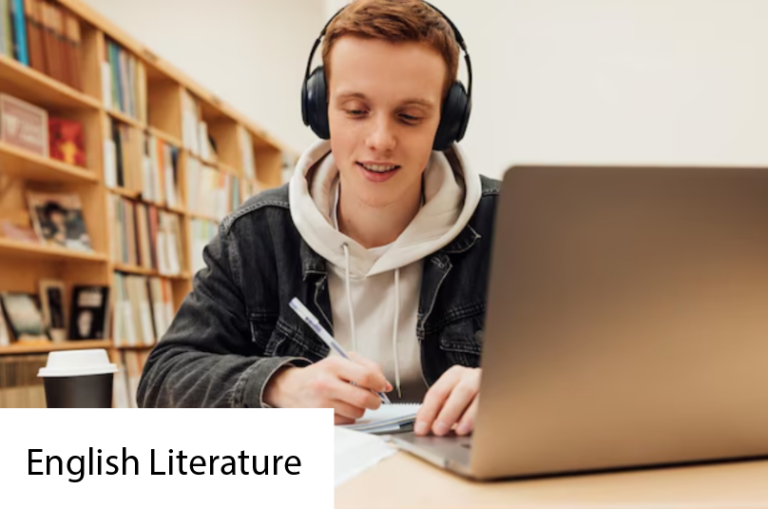
English Language
In grades 9 to 12, the English Language Arts (ELA) curriculum focuses on developing advanced literacy skills essential for academic success and
beyond. Students refine their ability to critically analyze a wide range of complex texts, including fiction, nonfiction, poetry, and drama, evaluating themes, character development, and literary techniques. Writing skills advance through crafting persuasive arguments, expository essays that delve into complex ideas, and analytical essays that examine literary elements and rhetorical devices. Research proficiency is honed as students conduct thorough investigations, synthesize information from multiple sources, and cite evidence appropriately. Speaking and listening skills are cultivated through formal presentations and collaborative discussions, where students articulate ideas clearly, evaluate diverse viewpoints, and demonstrate effective communication strategies. Language standards emphasize mastery of grammar, usage, and vocabulary to enhance clarity and precision in both written and spoken expression, preparing students comprehensively for higher education and future careers.
99 USD /1 month

Math
In grades 9-12, the math curriculum progressively advances students’ mathematical proficiency across various domains. Grade 9 focuses on
foundational algebra skills including linear equations and inequalities, quadratic functions, and basic concepts in statistics and probability.
Grade 10 introduces geometric transformations, trigonometry, and a deeper exploration of functions and their applications. Grade 11 builds upon these with advanced algebra topics such as polynomial and rational expressions, along with more complex functions and modeling techniques. Grade 12 culminates in calculus, where students delve into limits, differentiation, and
integration, alongside advanced statistics, probability, and mathematical modeling. Throughout these grades, the curriculum emphasizes analytical thinking, problem-solving strategies, and the application of mathematical principles in real-world contexts, preparing students for higher education and careers requiring strong mathematical aptitude.
99 USD /1 month

Biology
The biology curriculum for grades 9-12 focuses on advanced topics across various disciplines, including cell biology, genetics, evolutionary biology, ecology,
human anatomy and physiology, biotechnology, and environmental science. Students explore intricate concepts such as cell structure and function, molecular genetics, mechanisms of evolution, ecosystem dynamics, and the integration of organ systems in humans. Emphasis is placed on developing critical thinking, experimental design skills, and ethical awareness in biological research and biotechnological applications. These objectives aim to prepare students for higher education and careers in scientific fields, fostering a deep understanding of biological principles and their applications in real-world contexts.
99 USD /1 month

Chemistry
The chemistry curriculum for grades 9-12 covers fundamental concepts including atomic structure, chemical bonding, reactions, states of matter,
thermochemistry, kinetics, equilibrium, acids and bases, electrochemistry, organic and nuclear chemistry, environmental chemistry, and scientific inquiry skills. Students explore these topics to develop a deep understanding of chemical principles, their applications in various industries and everyday life, and their role in environmental sustainability. The curriculum emphasizes hands-on experimentation, critical thinking, problem-solving, and effective communication of scientific findings. These objectives aim to prepare students for higher education and careers in fields such as chemistry, medicine, engineering, environmental science, and materials science.
99 USD /1 month

Physics
Physics education for grades 9-12 covers advanced topics across mechanics, waves and optics, electricity and magnetism, thermodynamics, modern
phyysics (including quantum mechanics and nuclear physics), and applications in technology and engineering. Students learn to apply mathematical modeling and analysis in understanding physical phenomena, conduct experiments using scientific inquiry methods, and develop critical thinking and communication skills. The curriculum aims to prepare students for further education and careers in fields such as engineering, technology development, research, and applied sciences by providing a deep understanding of fundamental physics principles and their practical applications.
99 USD /1 month

Computer Sciences
In grades 9-12, the computer science curriculum focuses on advanced programming languages and data structures, including mastering
algorithms and object-oriented programming principles.
Students delve into software development methodologies, data analysis techniques, and web application development. They also explore cybersecurity, network concepts, and ethical considerations in technology. Higher grades introduce artificial intelligence, machine learning, and mobile app development, culminating in specialized topics like computer graphics or blockchain technology. The curriculum emphasizes hands-on projects, and collaboration, and prepares students for advanced study or careers in diverse fields of computer science and technology.
99 USD /1 month
International Exams
International exams play a significant role in global education, serving as standardized measures for academic achievement, proficiency, and readiness for higher education or professional certification. We hold training sessions that enable learners to pass the exams.
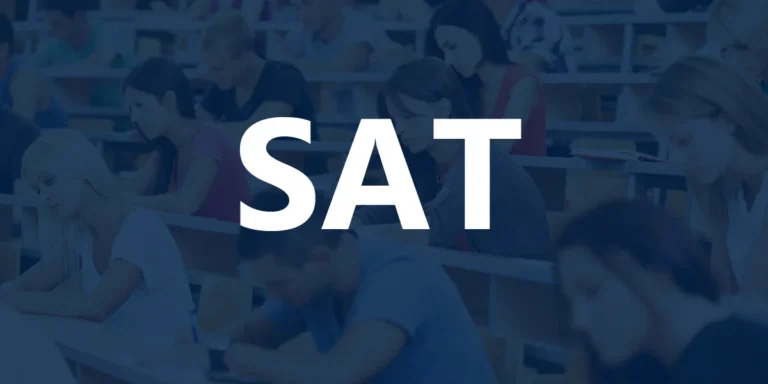
SAT
SAT assesses reading, writing, and math skills to predict a student’s success in college.
350 USD /Subject
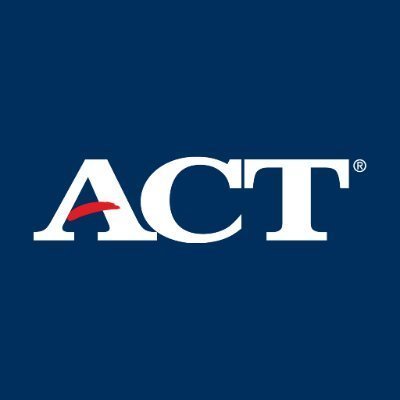
ACT
ACT measures college readiness through tests in English, math, reading, and science.
350 USD /Subject
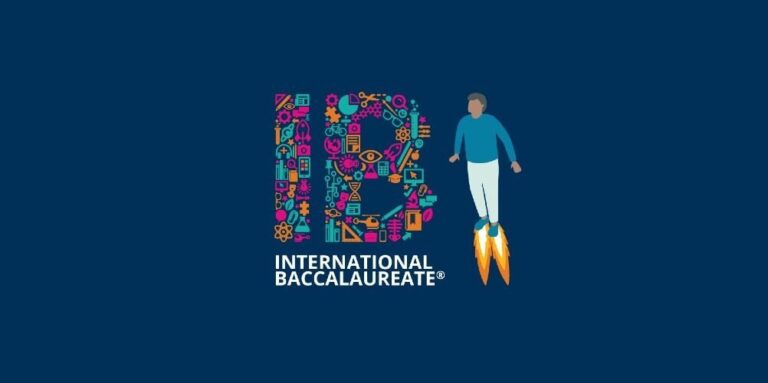
IB
IB emphasizes a broad range of subjects, critical thinking, and international mindedness.
350 USD /Subject

GCSE
GCSE assess a student’s knowledge in various subjects and serve as a foundation.
350 USD /Subject
Our Teachers
Our seasoned educators have years of experience shaping young minds. Their passion for knowledge is contagious, and they're dedicated to helping each student reach their full potential. Expect innovative lessons and a supportive classroom environment that fosters a love of learning.

Bisher M. Ali
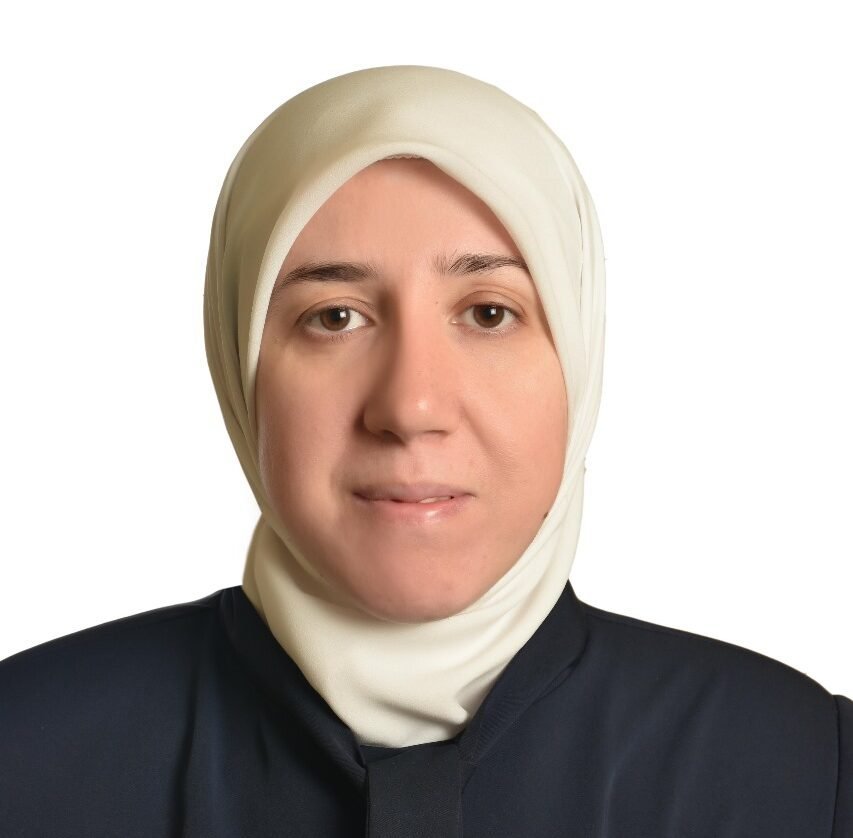
Mrs. Hiba Al-Rifai
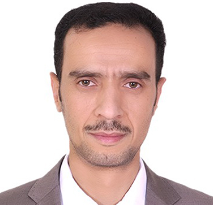
Fadi Saad
Why Choose Our Courses
Empowering young minds with interactive, culturally rich courses designed to make learning
fun and impactful
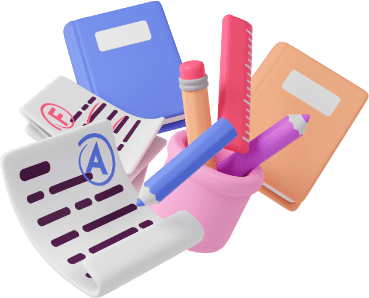
Specially Tailored for Children
Our courses are meticulously crafted for young learners, ensuring a fun and engaging educational journey that caters specifically to the developmental stages of young children.
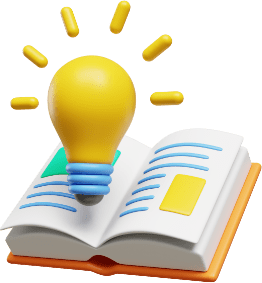
Culturally Enriching
Each lesson is rich with values that connect your child to their heritage, fostering a deep sense of belonging and appreciation for their cultural roots
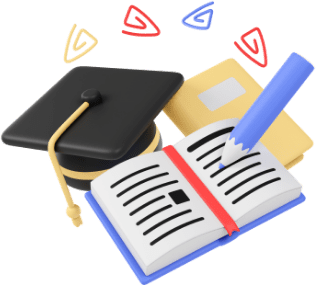
Learning Through Play
We believe in the power of play for learning. Our courses transform the challenge of mastering new skills into exciting and enjoyable activities, making education a delightful adventure for your child
Hear From Our Customers
Real stories from real people. Discover how our courses are making a difference in their educational journey.
Nawafith Al-Arabia expands children’s horizons widely; it broadens their perceptions and clarifies the basic concepts that a child needs at this age. The program prepares and helps the child to read and write.
I thank the teacher for her outstanding performance and clear effort in preparing the lessons, following all possible methods to deliver information to children of all levels. As for the presentation, videos, and pictures, they are very wonderful and serve the lesson and make it smooth and appropriate for the child’s age in terms of the colors, shapes, and selected characters...
Mother of Mays and Ahmed Mays and Ahmed’s mother. Your programs helped my twin children begin to speak Arabic with confidence, and to love and belong to Arab culture. Picture books were the most fun they had as they looked forward to a new adventure in every lesson, and I enjoyed watching their enthusiasm and their invaluable language development.
Frequently Asked Questions
Real stories from real people. Discover how our courses are making a difference in their educational journey.
At NS Realize, we harness technology to make learning accessible and engaging for all, breaking boundaries with e-learning for learners and educators worldwide.
About Company
More Links
Contact Details
© Copyright 2024. All Rights Reserved – NSR Realize
